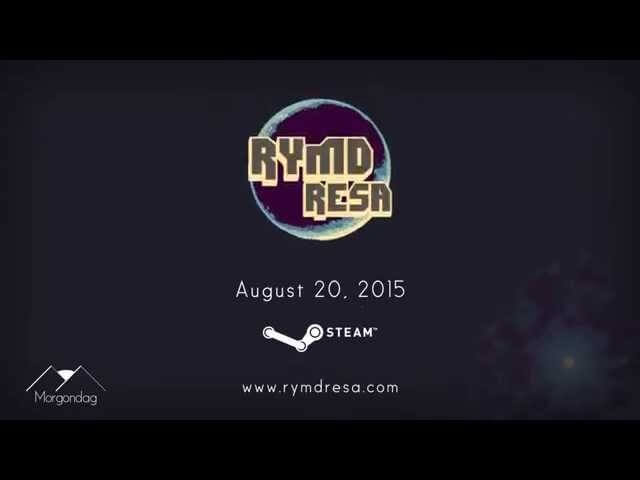RymdResa finds poetry in cripplingly lonely space exploration

Welcome to our weekly open thread for the discussion of gaming plans, nagging questions, and whatever else we feel like talking about. No matter what the topic, we invite everyone in the comments to tell us: What Are You Playing This Weekend?
RymdResa is a game about being alone. Developed by a Swedish couple and currently available on Mac and PC (with eventual releases for Wii U and Xbox One in the works), it casts you as one of the last survivors of a destroyed Earth. You wander the galaxy in a tiny ship, searching for something worth looking forward to: a new home, perhaps, or at least enough fuel and food to last through the next outing. The game surrounds its exploration, fraught with danger and a feeling of profound limitation, with tiny snippets of poetry, composed by the pilot to keep himself sane.
“May I sit on the moon and sing one day,” he says to no one after a long two years in the void. “To be light. To be somewhat glad to be in this universe. To be a survivor. Wish me luck.”
Meditative, beautiful, and tragic, RymdResa captures the feeling of absolute, nearly crushing solitude. I’ve been stuck on it lately, returning to it in between review assignments and major releases. Its space exploration is rote: collect resources, avoid obstacles while slowly drifting toward your next goal. But it’s better for it. There’s no combat, and often little to do but drift, think, occasionally dodge a meteor, or zoom out of the reach of a red dwarf. The mood is so palpable that it’s easy to get lost, contemplating your role in the universe and repeating lines of verse back to your intrepid astronaut. Instead of a realistic cosmos, you explore a void that’s awash in soothing greens and purples while abstract ambient music plays. It’s relaxation, almost ASMR, in video game form, juxtaposed with a solitude that keeps the entire experience teetering on the brink of despair.
To put it another way, RymdResa tries to capture what it might feel like to explore deep space on your own. Would you keep it together? Would you be able to maintain hope in the face of infinite nothingness, knowing you had nowhere to go back to? And even if this is the end, God, isn’t it beautiful?
“They sent a signal yesterday,” the pilot recites, in one of my favorite compositions so far:
They said:
—Hope, we got hope. You are close.
It is existing.
And they continued:
—It is living. A living surface.
And I opened my eyes,
And I stopped breathing for a while.